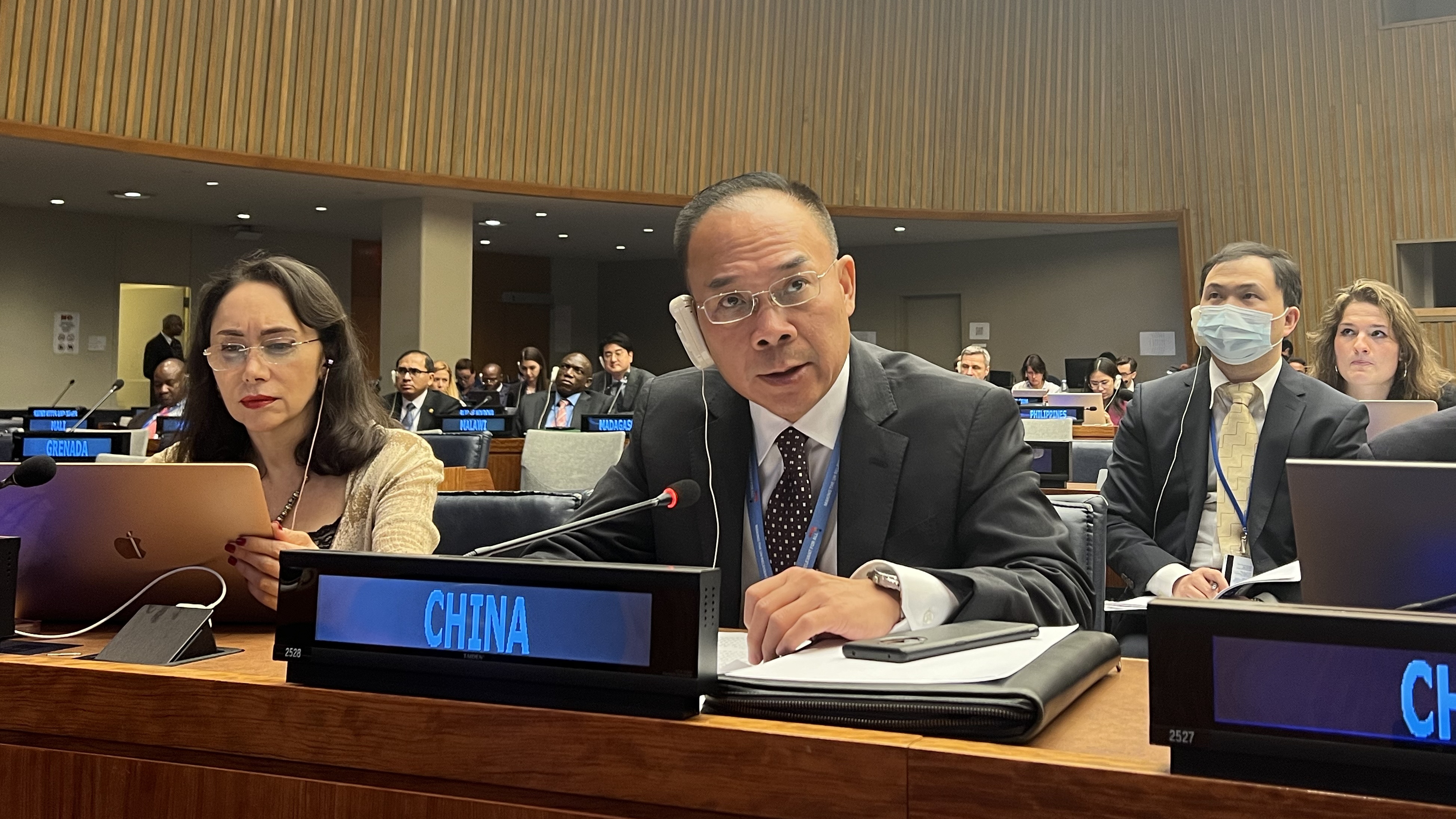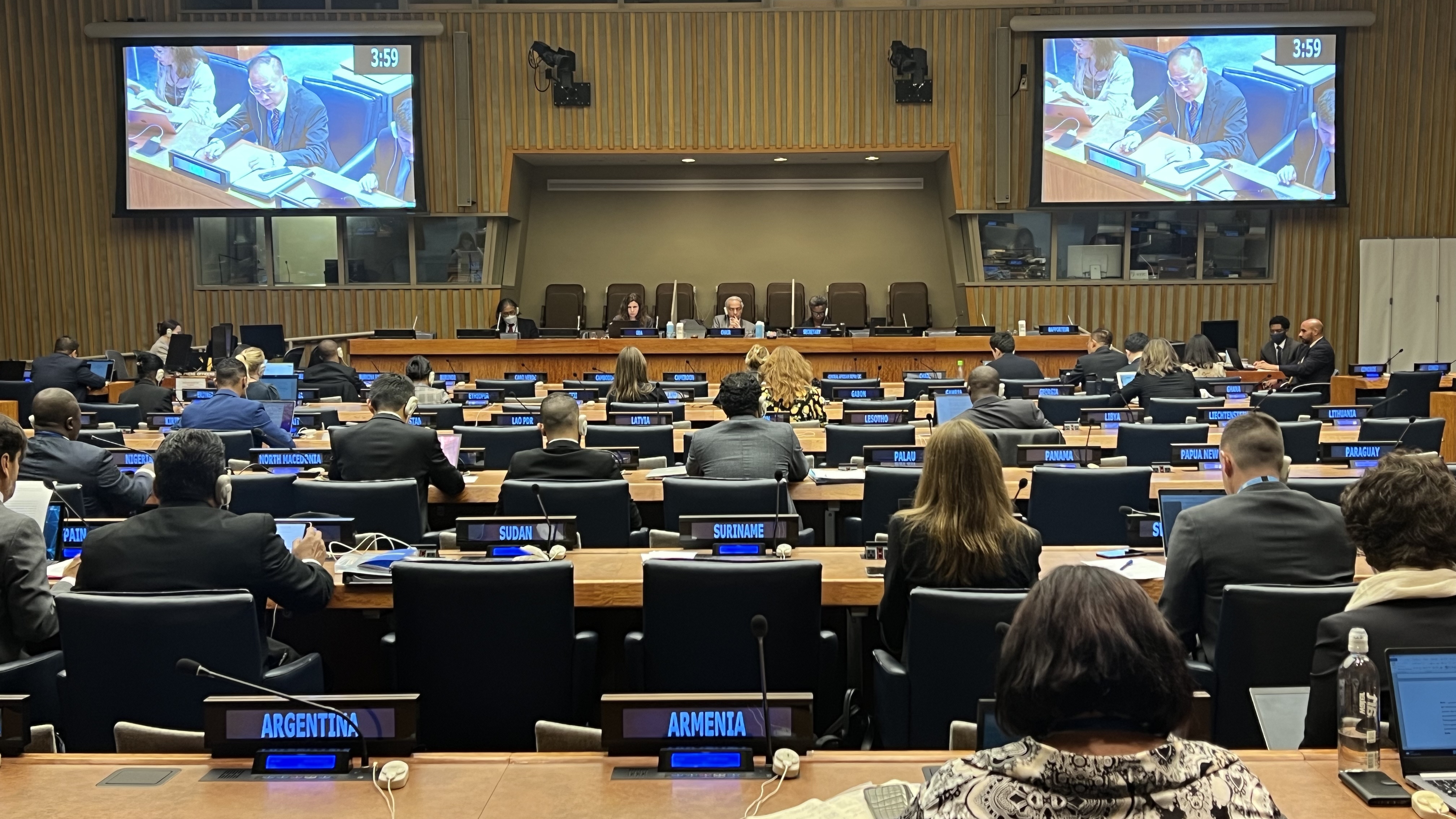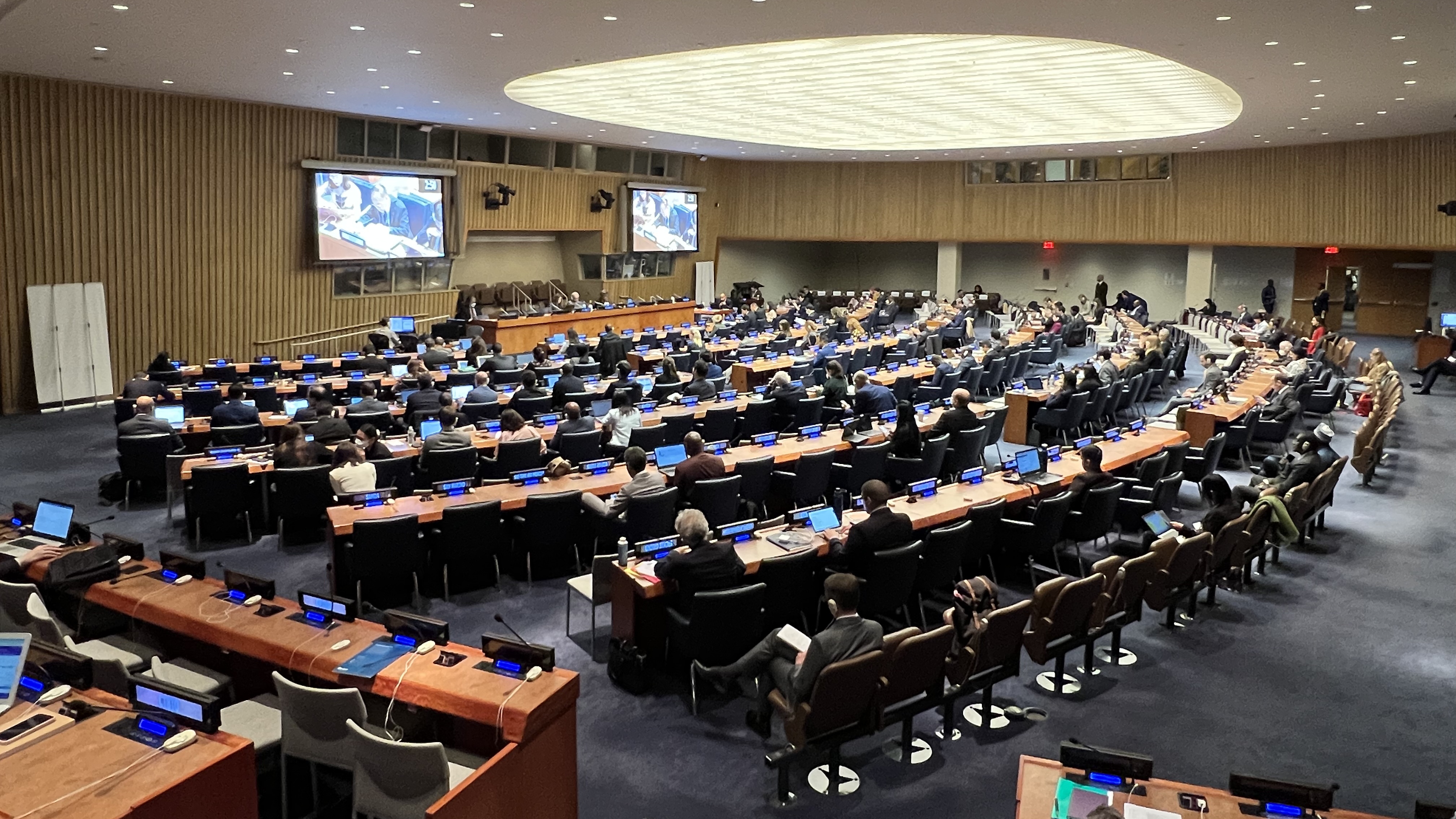| Remarks by H.E. Amb. LI Song at the Thematic Discussion on Outer Space of the 77th Session of the UNGA First Committee |
| 2022-10-28 10:28 |
|
Mr. Chair, All countries enjoy equal rights to the exploration and use of outer space for peaceful purposes. At the same time, there is a common responsibility to maintain outer space security. Outer space activities promote the development and prosperity of humanity. On the other hand, they also pose rising security challenges. The risk of the weaponization of and an arms race in outer space is increasingly becoming a reality and poses the greatest and most fundamental threat to space security. The root cause of an arms race in outer space lies in the attempts of the superpower to dominate outer space. Clinging to the cold war mentality, the country in question has long pursued a strategy for dominance in space. Its new Directive by the Department of Defense on Space Policy still regards outer space as “a priority domain of national military power” and seeks “durable strategic advantage” therein. This is the sword of Damocles hanging in outer space, threatening its peace, tranquillity, and the well-being and common security of humanity. Mr. Chair, Earlier this year, the United States announced that it would no longer conduct destructive direct ascent anti-satellite missile (DA-ASAT) tests. And now, it is proposing a draft resolution in the UNGA First Committee. We welcome all arms control initiatives genuinely conducive to the goal of PAROS. But we oppose any attempt to expand unilateral military advantage in the name of arms control. The United States began testing direct-ascent ASAT missiles as early as 1959, 2 years after the launch of the first man-made satellite. And it has possessed the full-fledged ASAT means through the development of half a century, and has been able to build operational ASAT capability through its missile defence equipment. In fact, it no longer needs to conduct destructive direct ascent ASAT tests. If the US truly cares about outer space security, it should have introduced the draft resolution 60 years ago. It should be noted that the US initiative would not impose any constraint on its own space military strategy or its build-up for the space force. As a high-ranking officer of the US Space Force testified in the Senate Armed Services Committee, “[w]e don’t give up too much because we have other ways to test our abilities”. Obviously, the US initiative is similar to the “expand first and control later” trick adopted by the superpowers during the Cold War, which aimed to restrict others while developing their own capabilities. Initiating such an arms control initiative at the current time in the 21st century is an attempt to hoodwink the international community as well as an irony coming from a superpower. The Chinese delegation, therefore, expresses our objection to the draft resolution proposed by the US and calls all Member States to distinguish between right and wrong in this regard.
Mr. Chair, The Chinese delegation welcomes and supports the statement made by Indonesia on behalf of the Non-Aligned Movement yesterday that reflected the extensive appeal of the international community. Many developing countries have further elaborated on their prepositions of PAROS in their statements. Most States believe that the maintenance of security in outer space must be premised on the prevention of the militarization of and an arms race in outer space. Without this premise, there will be no peace in outer space. Over the past 40 years, the UNGA has passed by an overwhelming majority the PAROS resolution every year. The Conference on Disarmament has also been working on PAROS, with the long-standing consensus that a legally binding instrument should be negotiated and concluded in the CD. The essence of the draft PPWT put forward by Russia and China in 2008 and updated in 2014 is no placement of weapons in outer space and no threat or use of force against space objects. These two proposed legal obligations are perfectly aligned with the prevention of weaponization of and an arms race in outer space, and the maintenance of its calm and lasting peace. Any country that has no ambition to dominate outer space should have no difficulty in undertaking the above-mentioned obligations. The US ambassador clearly mentioned in his statement that the outer space control treaty advocated by the US is limited to the issue of DA-ASAT tests. I would like to stress that the PPWT proposed by China and Russia clearly obligates all countries to promise not to use or threat of use of force in outer space. This could perfectly cover the concerns over anti-satellite weapons. If the country concerned shies away from such a comprehensive solution on the one hand, and on the other hand, deliberately promotes the very narrow arms control initiative that is meaningless to self-restraint, its motive and sincerity are questionable. And the significance of the proposed narrow international arms control initiative would be very limited and will not help safeguard outer space security comprehensively and in a common, comprehensive, cooperative and sustainable manner.
Mr. Chair, Since the beginning of this year, the OEWG on reducing space threats through norms, rules and principles of responsible behaviors has held two sessions. Parties had heated discussions on various issues, including the threats to outer space security from all sides, approaches and specific measures to ensure space security. It is clear that all Member States support the overall objective of PAROS. China and many other developing countries advocate a comprehensive, non-discriminatory and legally binding approach to addressing threats to outer space by negotiating and concluding an international legal instruments to this end. In this regard, if we turn a blind eye to the strategies, policies and measures of the superpower seeking dominance in outer space, and merely pursue norms for responsible space behaviours, outer space security will, unfortunately, end up in a situation of “the US dominates and others behave”, which is obviously not in line with the common interests of the broadest members of the international society, and will not contribute to the common security in outer space. Probably no country wants to compete with the United States for dominance in outer space, and China will certainly not do so, but the international community should not accept outer space being dominated by the United States. To codify so called “norms for responsible Space behaviors”, the superpower must first commit not to dominate outer space or to define outer space as a fighting domain. Countries should undertake, in a legally binding manner, not to use or threat of use of force against space objects, and work together to negotiate, at an early date, a comprehensive, non-discriminatory, and equally restraint international legally binding instrument on the prevention of the weaponization of and an arms race in outer space. We urge the US to set an example and play a “leading role” that is truly conducive to universal security and common security in outer space. Mr. Chair, Between 2018 and 2019, the UN GGE on PAROS conducted in-depth and substantive discussions on all kinds of issues pertaining to a relevant international legally binding instrument and produced a valuable draft report. However, it failed to be adopted because of the block by one single country, the US. This year, China and 20 other co-sponsors proposed the updated draft resolution “Further practical measures for the prevention of an arms race in outer space” (A/C.1/77/L.70) to re-establish the GGE on PAROS. This process complements the work of the OEWG on responsible space behaviour as their work is mutually reinforcing, and they will jointly serve the overall purpose of PAROS. We hope that all countries will actively support draft resolution L.70. Thank you, Mr. Chair. |
| |||||||||||||
| |||||||||||||


